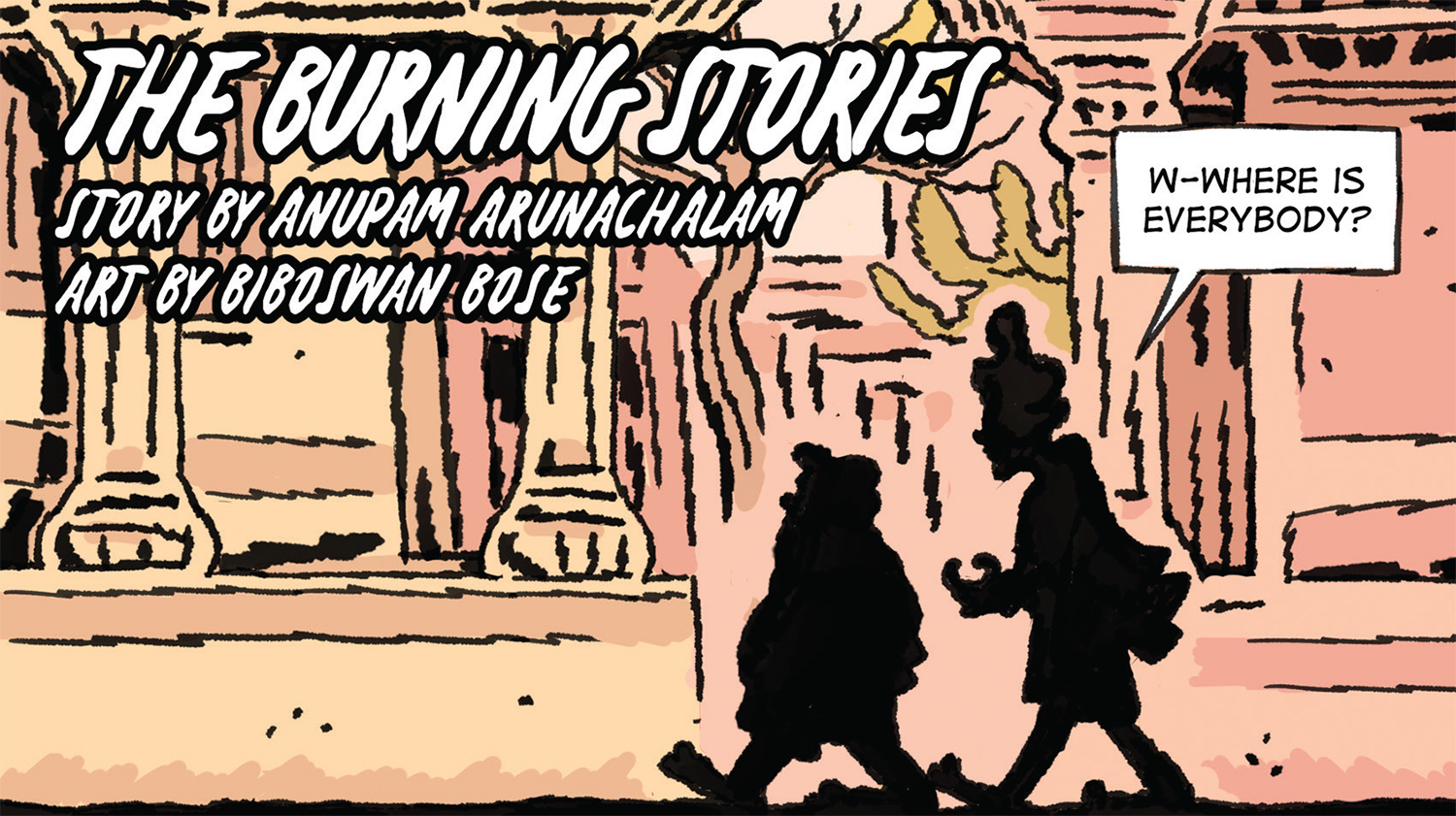
Vol 5 No 3 | Oct-Dec 2025
The Burning Stories
Story by Anupam Arunachalam | Art by Biboswan Bose
The story of Gunadhya…
Is a legend that offers a glimpse of truth. It speaks of a court poet who lost a wager and thus lost the privilege of composing in Sanskrit. He exiled himself from the capital, travelling far and wide in the quest for knowledge. Eventually, he began collecting the stories he heard along the way.
The collection he supposedly authored, known as the Brihatkatha (literally, ‘Great Tale’), no longer survives in its original form. After he had burned most of its pages, the Satavahana king had the remainder transcribed, and it is said that this fraction of the original gave rise to great compendia, such as the Kathasaritasagara, the Bṛihatkathāmañjarī, and the Bṛhatkathāślokasaṃgraha.
Paisachi-prakrit
Indeed, the language in which the Brihatkatha was written – paisachi-prakrit – itself is lost to time. It is a literary, rather than a spoken language, of the middle kingdoms of India and shares linguistic features with Prakrit.
In works of Sanskrit poetics like Daṇḍin’s Kavyadarsha, it is also called Bhūtabhāṣa, an epithet which can be interpreted either as a ‘dead language’ (which means no surviving speakers), or as ‘a language spoken by the dead’ (that is by ghouls or ghosts).
https://www.morningkashmir.com/literary-beauty-of-kashmir-pishachi-language/
Stories are everywhere
The story of how a poet broke out of structural norms is what survives today. Structures can clarify thinking, but they also fence in imagination. Inside the court, only the deeds of gods and royals counted. Outside of it, Guṇadhya discovered that tales of commoners, animals, ghosts and ghouls could be just as gripping, if not more.
While the account of the Brihatkatha feels like a triumph of the common over the elite, of the unseen over the seen, we may stop to ask the question: What if Gunadhya hadn’t once been a state-backed scholar? What of all the folk stories he never heard, or chose not to transcribe? His tale is a reminder that literature is not just about who writes, but about who listens—and whose stories endure. It is a reminder that there are surely stories out there that we would be fascinated by, if only we could hear them.

